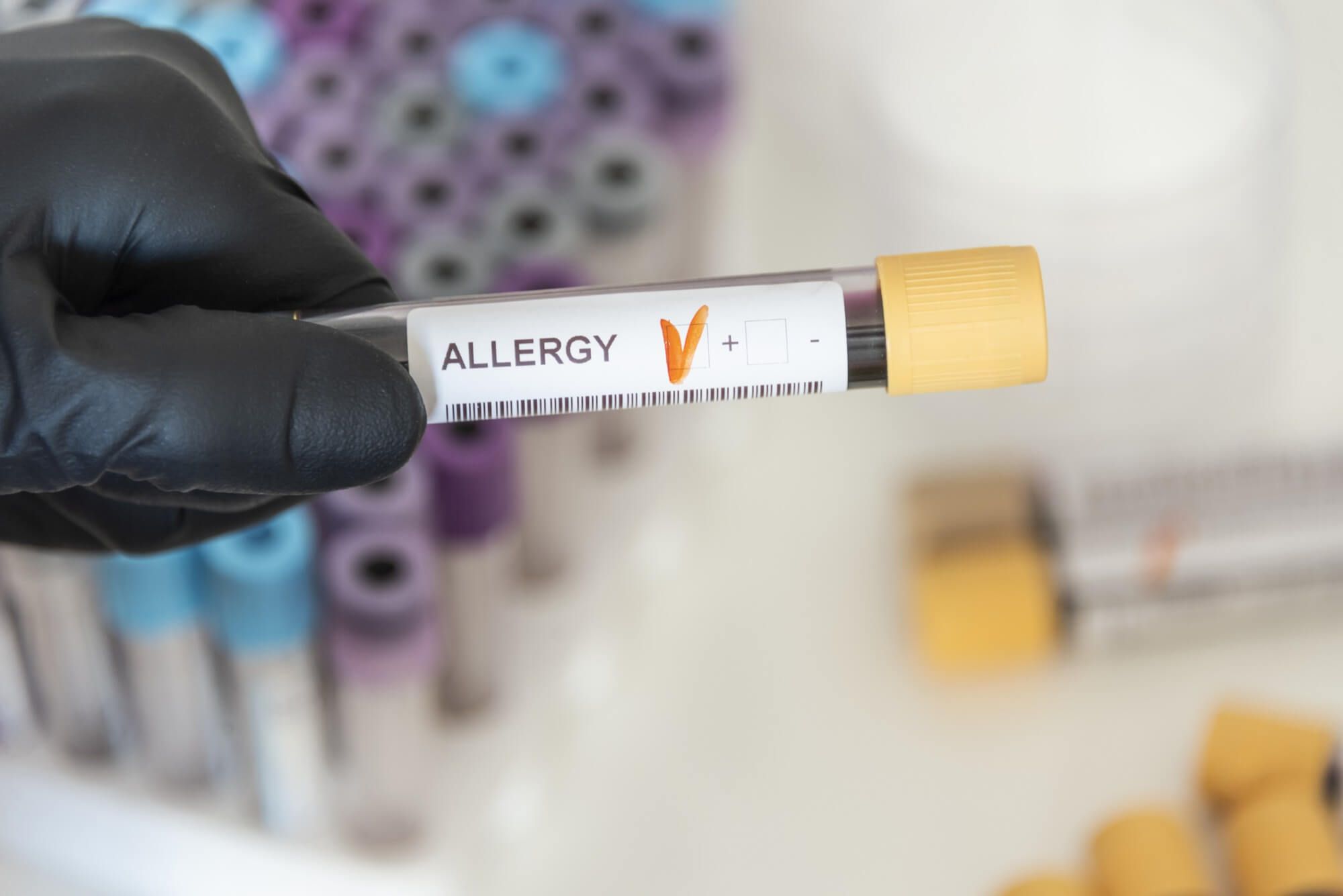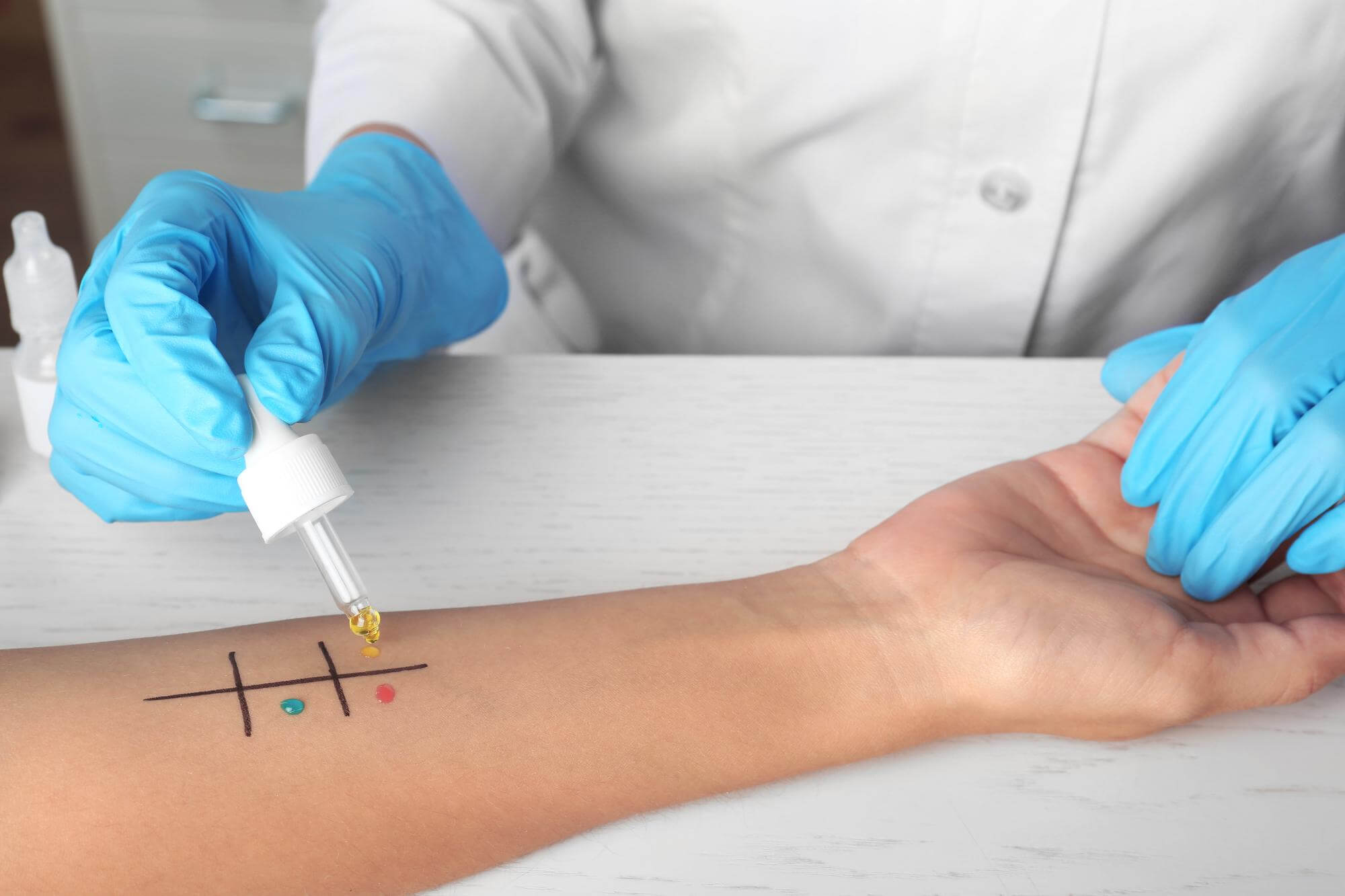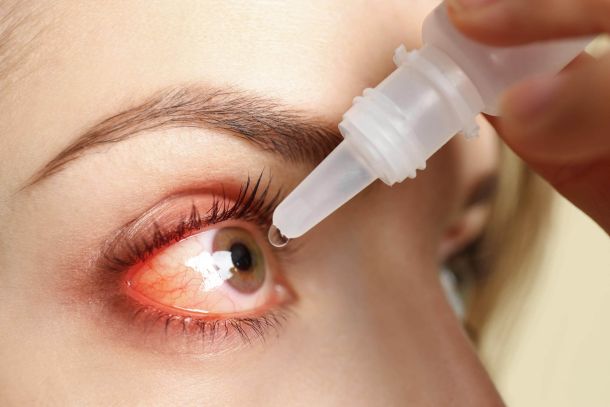What kind of allergy test do you need?


Eva Zakharova
Tests for allergies: an overview of diagnostic methods
Allergies are a common disease, which can manifest itself with different symptoms. In order to determine the cause of the allergy and choose an effective treatment, doctors perform various tests and tests. In this article, an experienced allergologist will discuss methods of allergy diagnosis, recommendations for preparing for tests, and interpretation of results.
General blood test
A general blood test allows to establish the general state of health of the patient and determine the presence of an inflammatory process. In the case of allergies, an important indicator is the level of eosinophils, cells that are involved in allergic reactions. Elevated levels of eosinophils can indicate allergies.
Immunoassay (ELISA)
ELISA is a method that detects antibodies to certain allergens in a patient's blood. It is used to determine the presence of allergies to food, pollen, animals and other allergens.
Analysis for immunoglobulin E (IgE)
Immunoglobulin E is an antibody responsible for the development of allergic reactions. The IgE test determines the total level of immunoglobulin in the blood and reveals the presence of allergies.
Skin tests

Skin tests are tests in which an allergen is applied to a patient's skin and the body's reaction is evaluated. This method is used to diagnose allergies to pollen, mold, food, etc.
Tests for provocation
Allergy provocation tests are used when other diagnostic methods do not give unequivocal results. The allergen is introduced into the body when the allergen is present in the skin. The allergen is given to the patient in a certain dose, and the body's reaction is observed.
Bronchial provocation
Bronchial provocation is used to diagnose allergic asthma and consists of inhaling an allergen or irritant to evaluate bronchial function.
Nasal provocation
Nasal provocation involves injecting an allergen into the patient's nasal cavity to detect allergic rhinitis.
Conjunctival provocation
Conjunctival provocation is performed by injecting an allergen into the conjunctival pocket of the eye to detect allergic conjunctivitis.
Preparing for allergy testing: recommendations and tips

Before taking a blood test for allergies
Before a blood allergy test, it is recommended:
- Do not eat or drink 8 hours before the test (on an empty stomach).
- Avoid taking antihistamines 3-7 days before the test, as they may affect the results.
- Avoid physical activity and stress 24 hours before the blood test.
Pre-performance of skin tests
Before skin tests, you should:
- Stop taking antihistamines 3-7 days before the test.
- Do not use cosmetics on the skin area to be tested.
Before performing provocative tests
Before conducting provocation tests are necessary:
- Coordinate with your physician to take all medications.
- Follow the doctor's instructions to prepare for the test.
Interpretation of allergy test results: what they mean

In blood tests for allergies, the main indicator is the level of eosinophils. An increase in eosinophils means a higher number of allergies. An elevated eosinophil count indicates a possible allergic reaction. However, for a more accurate diagnosis of allergies, additional tests are usually ordered.
Evaluation of enzyme-linked immunosorbent assay (ELISA)
ELISA results help to determine which allergens the patient is hypersensitive to. The presence of antibodies to certain allergens indicates an allergy. However, the degree of sensitivity may vary, and sometimes additional tests are required to clarify the diagnosis.
Interpretation of immunoglobulin E (IgE) test results
The IgE test can detect the total level of class E antibodies in the blood. Elevated IgE levels indicate the presence of allergies. An allergist may prescribe additional tests to determine specific allergens.
Assessment of skin test results
In skin tests, redness, itching, and swelling at the site of the allergen indicate a positive reaction to the allergen in question. The doctor evaluates the results of the tests and considers the patient's history to confirm or exclude a diagnosis of allergy.
Interpretation of Provocation Tests
Provocation tests allow the doctor to evaluate the body's reaction to a specific allergen. If the reaction is positive, symptoms characteristic of an allergic disease occur (e.g., difficulty breathing in the case of bronchial provocation). Evaluating the results of the provocation tests helps the doctor clarify the diagnosis and prescribe the appropriate treatment.
In conclusion, there are many tests and tests to detect allergies in adults and children. Considering the individual characteristics of each patient, the allergologist chooses the most appropriate diagnostic methods and determines the presence of allergies to various allergens. Determining the cause of the allergy allows you to prescribe effective treatment, which may include taking antihistamines, a course of desensitization, as well as taking steps to avoid contact with allergens.
Preparation for allergy testing also plays an important role in obtaining reliable results. Patients should follow all of the doctor's recommendations for test and test preparation, including temporarily stopping antihistamine medications and following dietary guidelines.
Interpretation of allergy test results and additional tests help the allergist to establish an accurate diagnosis and determine the most effective treatment for each patient. Thanks to a comprehensive approach and modern diagnostic methods, it is possible to detect allergic diseases in time and prevent the development of complications.
New materials
Popular Articles
We recommend reading
Contact us in the Contact Us section to ask questions, offer ideas, or for more information about our allergy resource.
Our articles are your trusted source of allergy knowledge. Learn how to make life with allergic reactions easier on our specialized portal.
©
Lechenie-Allergii.com. All rights reserved.
© Lechenie-Allergii.com. All rights reserved.
The information on this site is for informational purposes only and is not a substitute for professional medical advice. We recommend consulting with qualified medical professionals for accurate information and advice.
 English
English  Українська
Українська  Русский
Русский 









